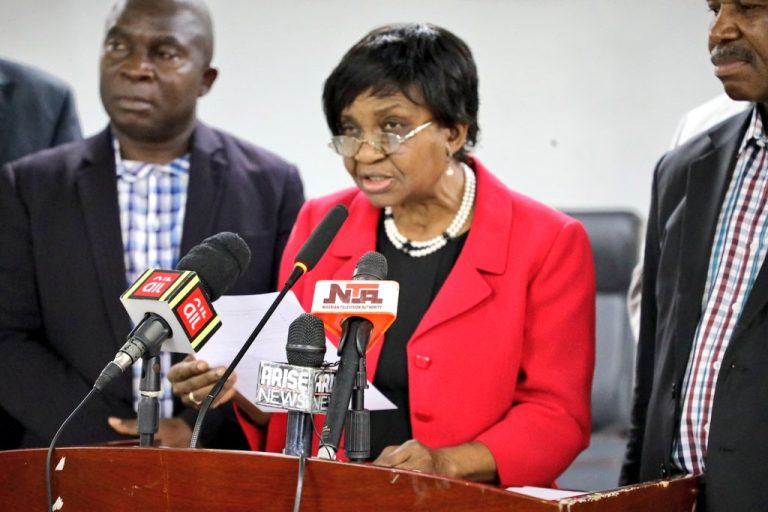NAFDAC (the National Agency for Food and Drug Administration and Control) has introduced a group of technology partners to help with the second phase of its drug tracking system. This is a big move aimed at improving the safety and transparency of how medicines are delivered across Nigeria.
Speaking at the event in Lagos, NAFDAC’s Director-General, Professor Mojisola Adeyeye, called the development an important achievement in the country’s efforts to protect public health. She said the new phase, which will focus on medicines for mothers, babies, and children, will help prepare for a nationwide tracking system.
Adeyeye explained that NAFDAC began tracking medicines in government-owned health services during the COVID-19 outbreak. Now, the agency is expanding the effort to private companies. “We started with narcotic drugs and are now moving to medicines for women and children. This shows our serious commitment to protecting lives,” she said.
She said tracking drugs is not just something required by law—it’s important for saving lives. Fake and low-quality medicines are dangerous, especially for women and children who are more at risk.
Adeyeye noted the agency’s progress, saying that in October 2024, NAFDAC’s traceability rules became official. This shows that the agency is ready to use new technology to make Nigeria’s health system more open and responsible.
She proudly said, “NAFDAC is now a leader in Africa in using GS1 technology to monitor medicine supply chains. Turkey started before us, but we are catching up.”
The second phase of the traceability project will last for 12 months and will involve a lot of cooperation from everyone involved. “We’re still talking with drug makers to make sure the process is smooth and effective,” she added.
She thanked the companies that have the legal right to sell medicines (called Marketing Authorization Holders, or MAHs). She said their support is very important in helping this system grow to include more types of medicines in the future.
She also praised the selected tech partners—SPROXIL, Chekkit, Afrihealth, Newsoft MSP, PharmaSecure, Adsofun, and mPedigree. She said their knowledge and ability to work together are key to proving that this system can work well in Nigeria and possibly in other countries too.
Adeyeye called on everyone involved—regulators, tech experts, and industry leaders—to work quickly and with a shared goal. She urged them to make sure medicines are properly labeled, data is shared, systems are connected, and feedback is collected using GS1 standards.
In his earlier remarks, Dr. Gbenga Fajemirokun, Special Assistant to the DG and Head of the Traceability Office, said the first phase of the project started on January 18, 2024. That phase focused on monitoring the movement of narcotic drugs.
He explained that being able to track medicines is important to make sure drugs are real, delivered on time, and meet all the rules. He said it also helps solve delivery problems, improves quality checks, and cuts costs, while keeping patients safe.
Dr. Fajemirokun warned about the dangers of fake medical products—like counterfeit drugs, vaccines, and devices—which can harm or even kill people. He said traceability helps follow products from the factory to the patient, so bad ones can be quickly removed.
Now that GS1 is the technical partner, and several solution providers are on board, NAFDAC believes this marks the beginning of lasting improvements in how medicines are tracked and managed in Nigeria’s health sector.


